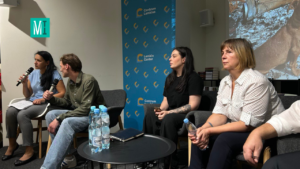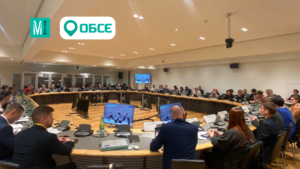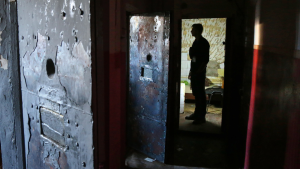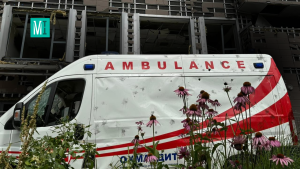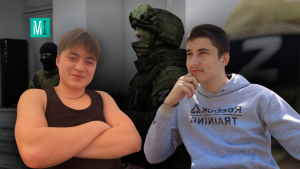OSCE, Vienna: MIHR coordinator and persons who suffered from occupation spoke about the Russians’ crimes in the Kherson region and mechanisms for solving humanitarian issues
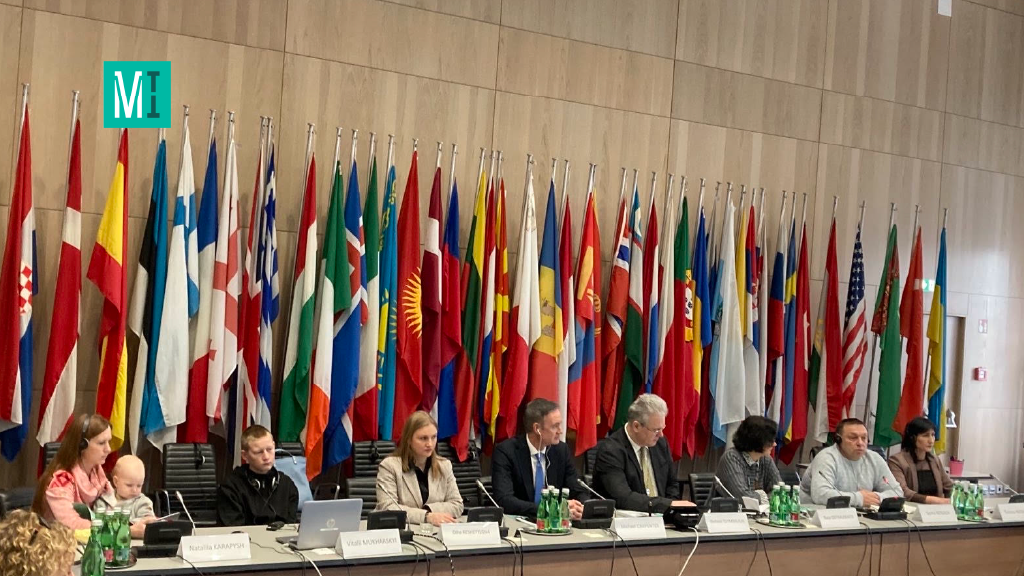
On February 1st, the Media Initiative for Human Rights, Delegations of Ukraine, the EU, and the US to the OSCE held the event in Vienna, “Kherson Oblast under the occupation of the Russian Federation: kidnapping, torture, and other crimes” for heads of delegations to OSCE. Residents of the region who suffered from Russian occupation spoke at the event: a school teacher who survived torture and his wife; a 14-year-old boy who was held captive; the wife of a civilian hostage.
During the event, the Media Initiative for Human Rights presented a report regarding the situation in the Kherson region. Having analyzed the testimony of eyewitnesses and civilians who had been under Russian occupation from March 2022 to November 2022 and people who are still living on the occupied territories, the Media Initiative for Human Rights recorded illegal encroachments upon human rights that are systematic violations of the Geneva Conventions and constitute war crimes.
The Media Initiative for Human Rights investigative journalists collected testimonies of civilians who were under occupation and are currently suffering from shelling during several field missions to the de-occupied territories of the Kherson region on the right bank of the Dnieper. In addition, the Media Initiative for Human Rights journalists maintain contact with the families of hostages who have not yet been released.
During the event, witnesses shared their stories about living under the occupation. Some of them were in captivity.
Serhiy Nosach and his wife Tetiana have survived the occupation in Beryslav. Serhiy, a teacher from the Kherson region, was kidnapped from his home in August 2022. Russian military tortured Serhiy during the interrogations.
“The town residents knew that we were a pro-Ukrainian family. Many of my ex-students have been serving in the police and Armed Forces of Ukraine,” said Serhiy. The man shared the moment when he realized he would be detained: a friend of the family said she was being asked why she was visiting a pro-Ukrainian family.
“August 5, the UAZ and Ural vehicles approached us. Russian soldiers came out, asked who lived there, and immediately entered the house. They began to demand that we give them our phones — mine and my wife’s”.
The military found a Butterfly Mine photo in Serhiy’s phone. Serhiy demonstrated this photo at school when he told kids about the danger. In exchange for his freedom, the man was offered to inform about town residents with a pro-Ukrainian position, veterans of the Ukrainian Anti-terrorist Operation in Ukraine’s east after 2014, and relatives of military personnel. After refusing to cooperate, Serhiy was taken to a plant and locked in a small metal container measuring 2×6 meters, where he was one of 16 hostages. Serhiy Nosach was held captive for five days. The man was beaten, tortured with electric shocks, and threatened with execution.
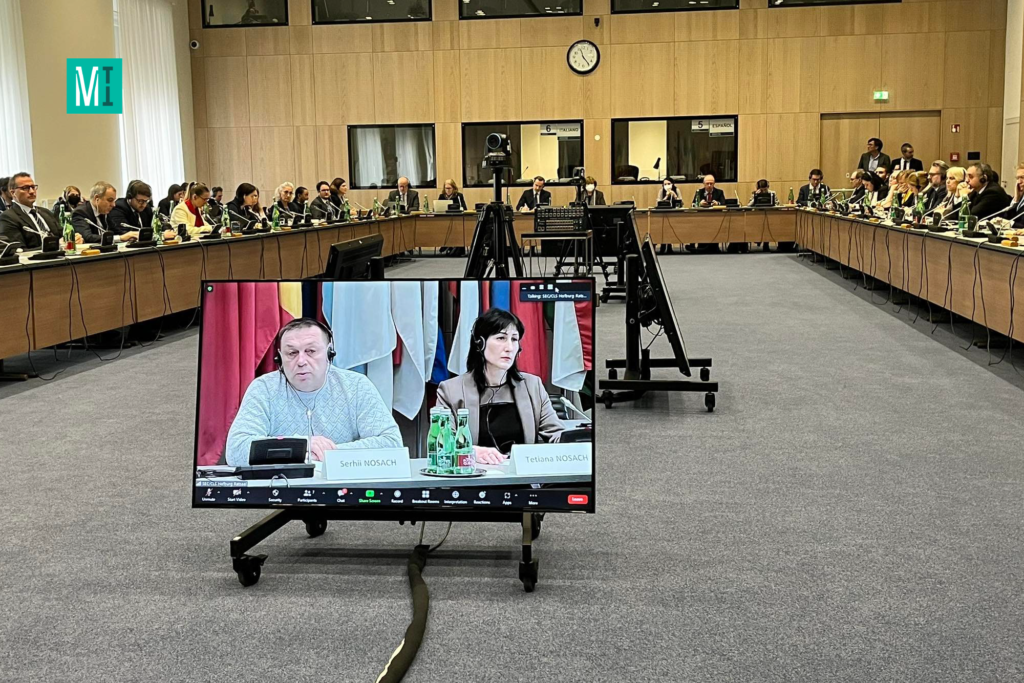
Serhiy Nosach’s wife, Tetiana, a schoolteacher, talked about the situation in Beryslav during the occupation. The woman recalled how parents of schoolkids asked for textbooks for their children to study in the summer, but the occupiers replied that there were no more Ukrainian textbooks, and they had not yet had time to bring in the Russian ones. The Russians also offered to bring the children to school in September — to study according to the Russian curriculum.
“We, the teachers, were threatened: teaching from home online will harm us. We were also worried about our own children, who were also studying, so at the beginning of September, I had to leave the city with my daughter,” said Tetiana.
The couple cannot return to the liberated Beryslav, as the city is under constant shelling. According to Tetiana Nosach, a 12-year-old student at her school recently died with his entire family in their own house, which was hit by a Russian rocket.
Vitaly Mukharskyi is a 14-year-old boy from the village of Kyselivka, near Kherson. During the event, Vitaly told details about his detention and conditions of captivity, including the fact that he was kept together with 12 other prisoners in a small room. The boy said he is afraid to go through this experience again: “Fear? Yes, there is still fear.”
The occupiers held Vitaly captive for ten days, accusing him of passing information about Russian military equipment to the Armed Forces of Ukraine.
The Russian military detained Vitaly in Kyselivka in September 2022 with his 28-year-old uncle and took him to Kherson. There they were separated. As Vitaly’s parents managed to find out, that boy was kept in the basement of the Kherson Court of Appeal.
The prisoners who were together with Vitaly were periodically taken out of the basement for interrogation. These people said that on the third floor of the building, Russians tortured and forced people to pass a lie detector.
For the first four days of captivity, the boy was hardly fed; on the fifth day, he was given two spoons of buckwheat and two spoons of pasta. Vitaly was threatened with being taken to Russia and imprisoned.
Olga Kayova from Kherson is the wife of civilian hostage volunteer Yuriy Kayov. Russian soldiers detained a man when he was bringing humanitarian aid to Kherson.
In April, Yuriy Kayov started working as a driver for the Red Cross and later received a volunteer ID. He evacuated civilians from Kherson to the territory controlled by Ukraine; on the way back, he carried medicines and food kits.
On August 5, during another humanitarian trip, he was detained by the Russian military. Only in two months, Olga learned where and under which conditions her husband was kept. Yuriy was handcuffed to the bars and tortured with electric shocks for five days in the basement. Later, Olga found out that Yury was transferred to the pre-trial detention center in Simferopol and from there to the Lefortovo pre-trial detention center in Moscow.
“Since August, I have been trying to reach all state institutions and international organizations, but I still do not have confirmation of where my husband is. The International Committee of the Red Cross responds that they don’t have access to Russian colonies and prisons, where dozens, and in some cases, hundreds of Ukrainian hostages are being held. Russian lawyers, activists, and human rights defenders are often intimidated; they refuse to help Ukrainian hostages.
Please help us get access to our relatives. We need to know the conditions in which they are being held and what they are accused of. They need to exercise their right to protection. I hope that the world will not stay aside,” Olga addressed the representatives of the missions.
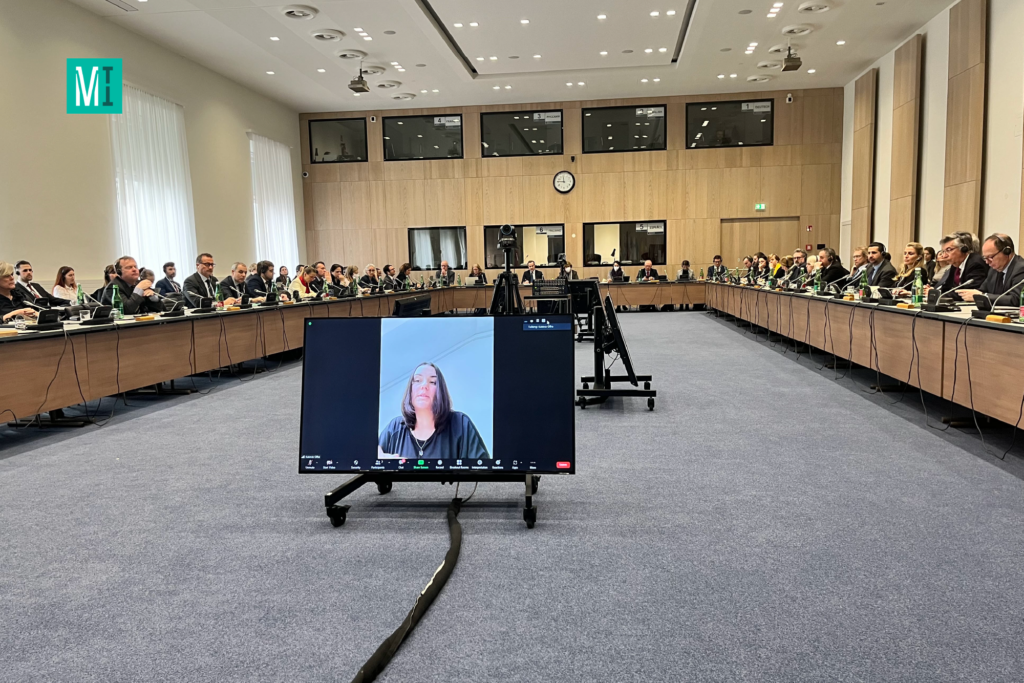
The ambassadors who were present at the event thanked the survivors for their speeches and emphasized the importance of their testimonies.
“Your testimony, what you have told here, is key in the process of how we seek justice,” said the Netherlands` Ambassador to the OSCE.
Olga Reshetylova, the Media Initiative for Human Rights co-founder and coordinator, recalled: when during the Minsk negotiations, humanitarian issues were put on a par with political and economic ones, Russians used this as an opportunity to blackmail the Ukrainian authorities and the international community.
Olga emphasized that it is necessary to create a platform for negotiations on humanitarian issues, particularly on children illegally taken by Russia from the occupied territories, on hostages, access to them, and the conditions of their detention, because currently, there is no mechanism for solving these problems.
Olga also reminded that Ukraine needs a mechanism to work with all war crimes committed by the Russian occupiers since the International Criminal Court will be able to consider only a few of the tens of thousands of documented crimes. “Of course, this is a challenge for the international legal system, but at the same time, it is a chance and opportunity to create a more effective system that will help prevent other conflicts and other war crimes,” Reshetylova believes.
With the financial support of the Czech NGO “People in Need”, within the SOS Ukraine initiative. The content of the publication does not necessarily reflect their views.


